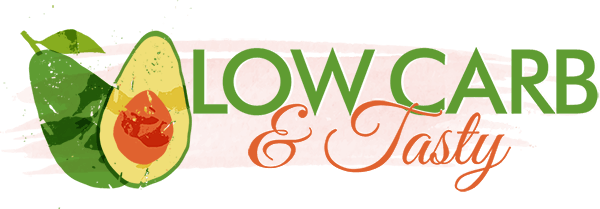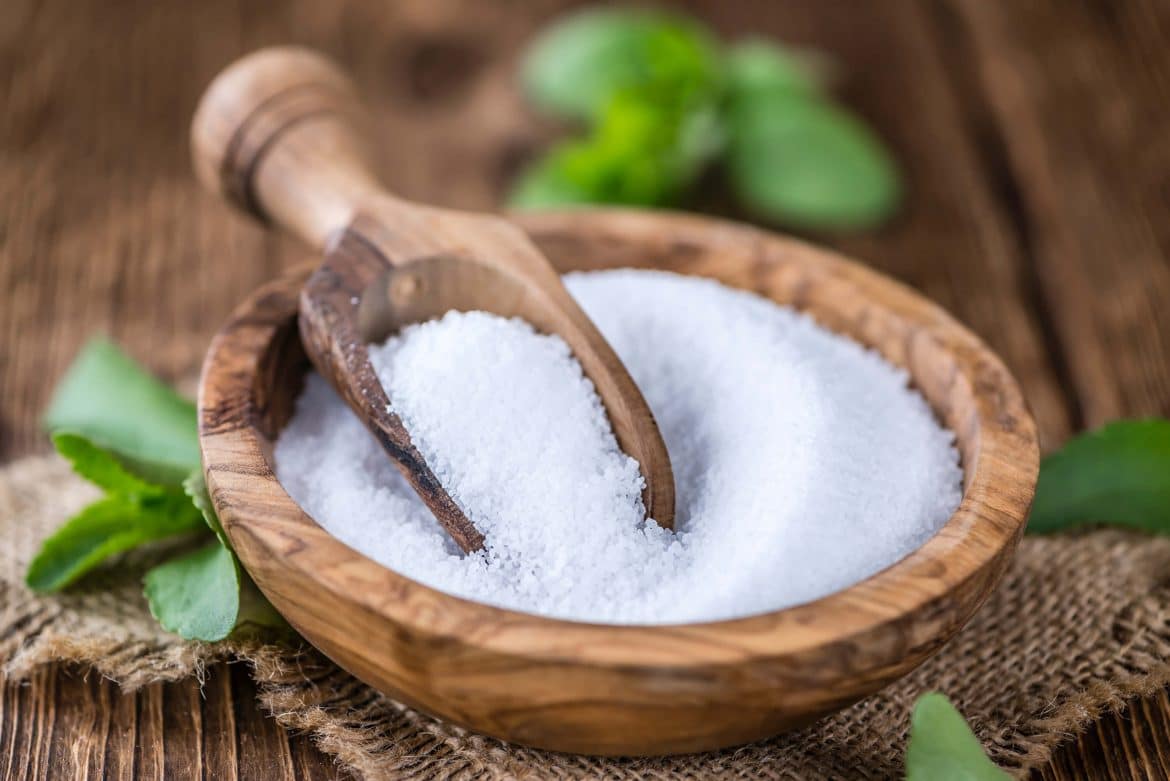When you’re following a low carb lifestyle, sugar-packed foods like soda, cakes, muffins, pastries, ice cream, candy, and energy bars are typically off the menu. Yep—all the sweet stuff we grew up loving!
But here’s the good news: you can still enjoy sweets without the sugar crash. That’s where low carb sweeteners come in.
These sweeteners deliver the flavor you’re craving—often with zero (or very few) calories—and most won’t spike your blood sugar or insulin levels. That’s a big win, especially if you’re managing conditions like obesity, insulin resistance, or diabetes.
The best part? There are more options than ever. Artificial sweeteners are being replaced with natural alternatives that taste great and work well in all kinds of recipes. With so many to choose from, it can be tough to know which one to reach for—so I’ve put together a simple guide to help. You’ll find a quick overview of the most popular low carb sweeteners, plus tips on how to use them. Of course, everyone’s taste buds are different, so you might need to experiment a little to find your favorite.
Artificial vs. Natural Sweeteners
The difference between artificial and natural low carb sweeteners is exactly how it sounds. Artificial sweeteners contain chemicals produced in a lab. Natural sweeteners are plant based. In terms of the Food & Drug Administration (FDA), “natural” means nothing artificial or synthetic (including all color additives regardless of source) has been included in, or has been added to, a food that would not normally be expected to be in that food. I recommend using natural sweeteners whenever possible, although I realize choices can be limited when it comes to pre-packaged foods. Always read the labels!
Safety
Are low carb sweeteners safe to use? Data on the long-term and/or heavy use of low carb sweeteners is contradictory. A 2017 research study found artificial sweeteners associated with obesity, high blood pressure, type 2 diabetes, and heart problems. In addition, low carb sweeteners may cause mild to severe gastrointestinal issues, especially if consumed in large quantities. Click here for the FDA’s list of acceptable daily intake levels.
It’s still too early to know the long-term side effects for newer sweeteners.
The Bottom Line
Low carb sweeteners can aid in the transition to a low carb diet and keep you on track, especially in the early days. However, at least one study confirms they can also stimulate the appetite and trigger overeating. Therefore, it’s best to use them sparingly to supplement whole foods. Experiment to find what works best for you and your body. If you’re not seeing the results you want, low carb sweeteners should be the first to go.
Low Carb Sweetener Comparison
Sugar Alcohols
Sugar alcohols have a similar structure to sugar, but contain an added alcohol molecule. The body does not absorb and metabolize sugar alcohols, so they are often subtracted from total carbs.
| Sweetener | Best For… | Notes |
| Erythritol (Swerve) | Baking | Erythritol is made from fermented corn or cornstarch and provides minimal calories. It is great for baking, since it is a direct replacement in recipes. Some people experience a cooling sensation on the tongue, especially when used in large amounts. |
| Xylitol | Ice Cream and Frozen Goods | Xylitol is extracted from corn or birch wood and is often used in chewing gum and mouthwash due to its dental health benefits. While it freezes better than other sweeteners, it does contain 2.4 calories per gram. Be careful keeping this in the house if you have pets, as it is highly toxic, especially to dogs. |
| Maltitol | Not Recommended | Maltitol is made from the hydrogenation of the corn-syrup by-product maltose. Since it is less expensive than other sugar alcohols, it is found in many commercial products. Maltitol has been shown to raise blood sugar levels and is a powerful laxative, so be wary of this one! |
Plant-Based Low Carb Sweeteners
| Sweetener | Best For… | Notes |
| Monk Fruit | Baking | Antioxidants extracted from the fruit provide the sweetness. It is commonly blended with other ingredients to reduce intensity, so be sure to check labels. Monk Fruit sweetener is the least likely to cause digestive issues, and does not have a bitter aftertaste. |
| Allulose | Baked Goods and Ice Cream | Allulose is absorbed by the body but is nearly calorie-free since it is not metabolized. It bakes and freezes like sugar. This sweetener is relatively new to the market, and can be expensive. |
| Yakon Syrup | Cookies and Cakes | Yakon Syrup is extracted from the yacón plant. It is sweet and dark in color, with the consistency of molasses. Yakon Syrup occurs naturally (like maple syrup), and contains 1.3 calories per gram. It makes a great substitute for molasses in recipes. |
| Stevia (SweetLeaf, Truvia) | Coffee | Stevia is a natural sweetener extracted from the leaves of a South American shrub. The highly processed product is much sweeter than sugar, so it is often mixed with erythritol. Some experience a metallic or bitter aftertaste. |
| Agave Syrup | Not Recommended | Like high fructose corn syrup, Agave Syrup is 85% fructose. It is best to avoid, since high amounts of fructose are associated with obesity and other serious diseases. |
Artificial Low Carb Sweeteners
As mentioned above, these sweeteners are man-made and the jury is still out as to their safety. With more natural alternatives available, I don’t recommend their use.
| Sweetener | Best For… | Notes |
|---|---|---|
| Saccharin (Sweet’n Low) | Not Recommended | The oldest artificial sweetener, discovered by accident in a lab. Primarily used in diet sodas and sweetener packets, some find it has a metallic aftertaste. |
| Acesulfame K (Sunett, Sweet One) | Not Recommended | Often combined with other sweeteners, as it tends to have a bitter aftertaste when used in baking. Found in light juices and ice cream |
| Aspartame (NutraSweet, Equal) | Not Recommended | Aspartame breaks down at high temperatures, which makes it unsuitable for baking. It is mainly used in diet sodas and as a tabletop sweetener. Aspartame has the worst reported side effects of all artificial sweeteners and is not safe for those with phenylketonuria. |
| Sucralose (Splenda) | Not Recommended | Sucralose is made from sugar, but is much sweeter. It has been linked to an increase in blood glucose levels and a decrease in healthy bacteria in the GI tract. |

